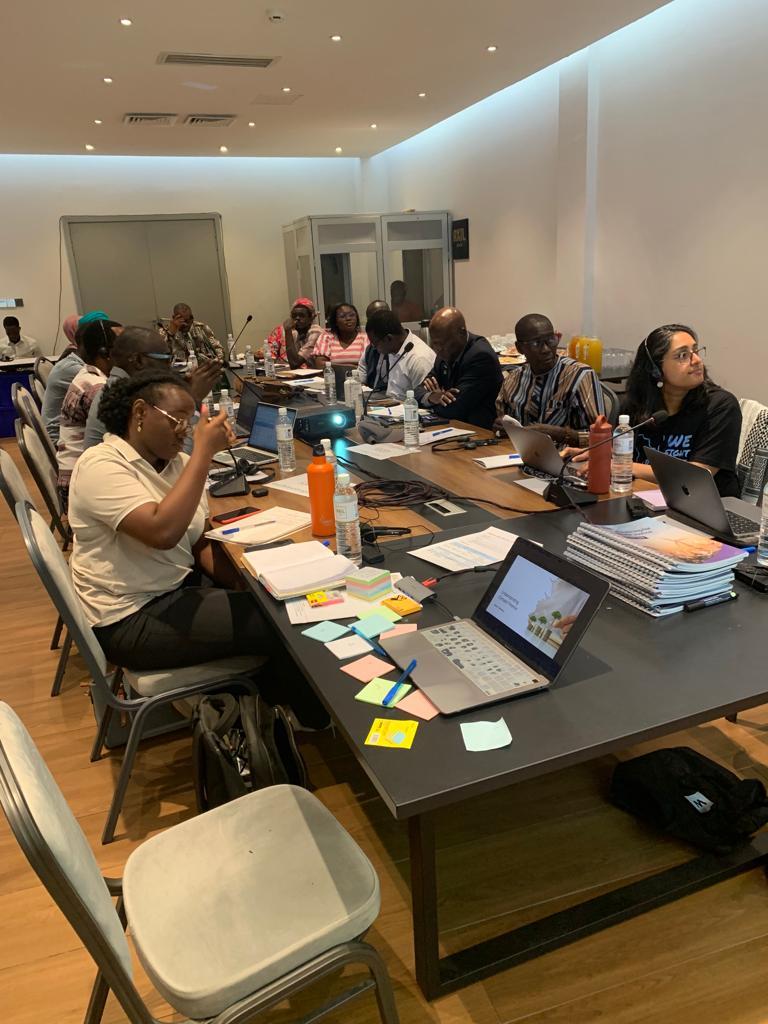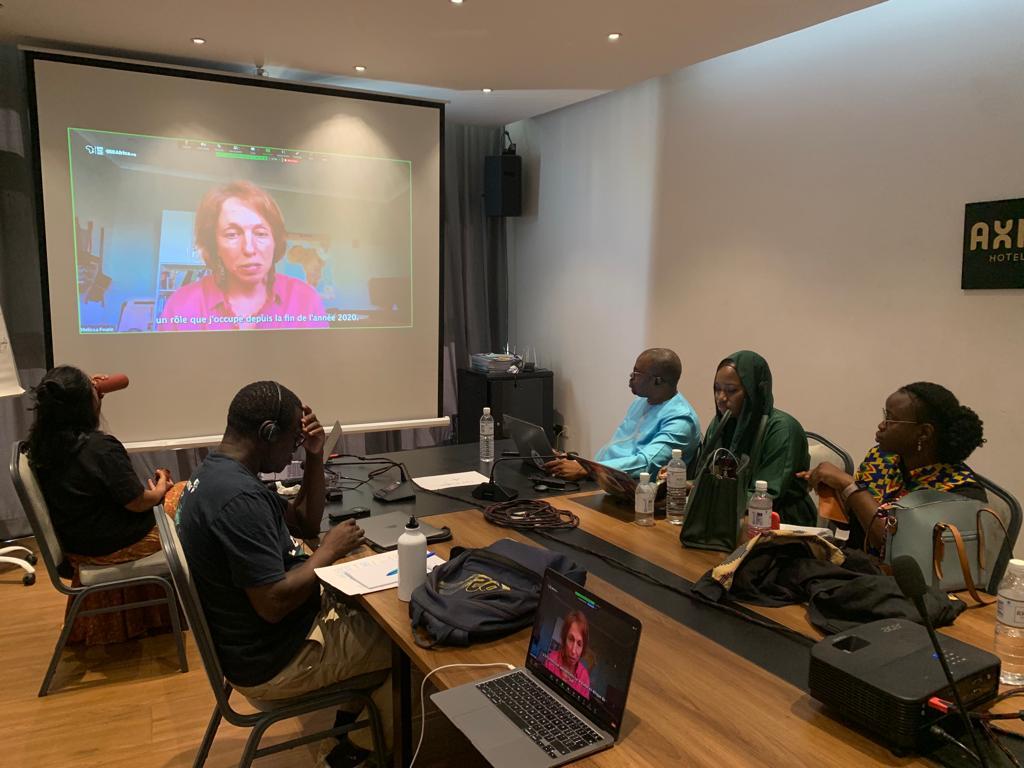A recent workshop in Senegal brought together minds from South Africa, Senegal, and Indonesia, sparking conversations on the Just Energy Transition Partnership (JETP) deals. JETPs are climate finance deals that aim to resource countries to decarbonise – you can read more about them on here. The workshop aimed to explore the unique contexts of each JETP recipient country, foster relationships, build solidarity and uncover opportunities for mutual learning and action. Multiple Senegalese civil society organizations were in attendance.
Day 1: Building Foundations for Understanding and Collaboration
The initial day set the tone for the workshop, emphasizing the importance of understanding the experiences of civil society in South Africa and Indonesia participating in JETPs. The objectives were clear: unravel the complexities of JETPs, bridge the gap in climate finance knowledge, and explore the character of justice within JETPs. The discussions delved into the history of climate finance, the role of the private sector and the challenges faced in ensuring equitable distribution of finance.
Some key points include the differentiation of public and private finance, addressing urgent emergencies such as loss and damage, and emphasizing the role of civil society in holding countries accountable when raising and spending climate finance.
Day 2: From Theory to Action – Exploring Case Studies and Principles
The second day introduced practical elements, including case studies and principles guiding fair finance. Participants delved into the South African Presidential Climate Commission’s work, the Fair Finance Coalition of Southern Africa, and the alignment of JETPs with national climate commitments. Workgroups explored the significance of principles for fair climate finance in their respective contexts, emphasizing equity and transparency as guiding lights.
A session explored case studies from South Africa, explained the alignment of the Just Energy Transition Partnership (JETP) with Nationally Determined Contributions (NDCs) and the Paris Agreement, and engaged with the application of Fair Finance Principles.
Day 3: Clarification and Future Planning
The final day provided clarity on lingering topics and paved the way for planning events and campaigns. The group’s readiness for potential campaigns was assessed, ensuring a creative and constructive conclusion to the workshop. The main objective was to engage Senegal’s civil society with their South African counterparts, fostering a collaborative approach to JETP development.
The Senegal workshop on JETP proved to be a melting pot of ideas, experiences, and strategies. As civil societies from different corners of the world converged, the workshop not only enhanced understanding but also laid the groundwork for collaborative initiatives. The journey from information exchange to practical applications showcased the potential for transformative change in climate finance. This gathering is a beacon of inspiration for those navigating the intricate landscape of environmental sustainability and justice.


